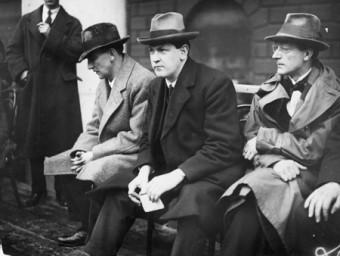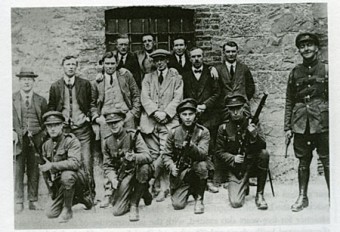Search Results for 'Free State Government'
2 results found.
‘No cheering crowds, no military parades, no public holidays’

On December 7 1922, less than eight months after the Kilmilkin battle, Pádraic Ó Máille TD and his friend Sean Hales TD of Cork, walked out of a hotel on Ormonde Quay, by Dublin’s river Liffy. They just had lunch, and were on their way back to the Dáil in Leinster House, a short drive away. Ó Máille, Galway city and Connemara’s first TD, had been appointed Leas Ceann Comhairle (deputy speaker). As they reached their car a gunman stepped forward and opened fire. Both men were hit, but Hales was bleeding profusely. Although seriously injured Ó Máille managed to get Hales into the car and drove to the nearest hospital, where he collapsed. Hales was dead..
Firing squads bring Civil War to a close

The Civil War in Galway came to an end because there was little appetite for further bloodshed in the face of ruthless determination by the Free State, or the pro-treatyites, to stamp out the anti-treaty forces. The Free State government warned that anyone carrying weapons other than the National Army, would be shot. Eleven Galway anti-treatyites were shot by firing squad. On January 20 1923 Martin Bourke, Stephen Joyce, Herbert Collins, Michael Walsh, and Thomas Hughes, all attached to the North Galway IRA Brigade, were arrested and executed in Athlone. On February 19 eighteen volunteers were arrested in Annaghdown, and brought to Galway gaol. It was given out that all were ‘well armed’. Even though it was expected that all, or a number of them, would be shot, nothing happened.

